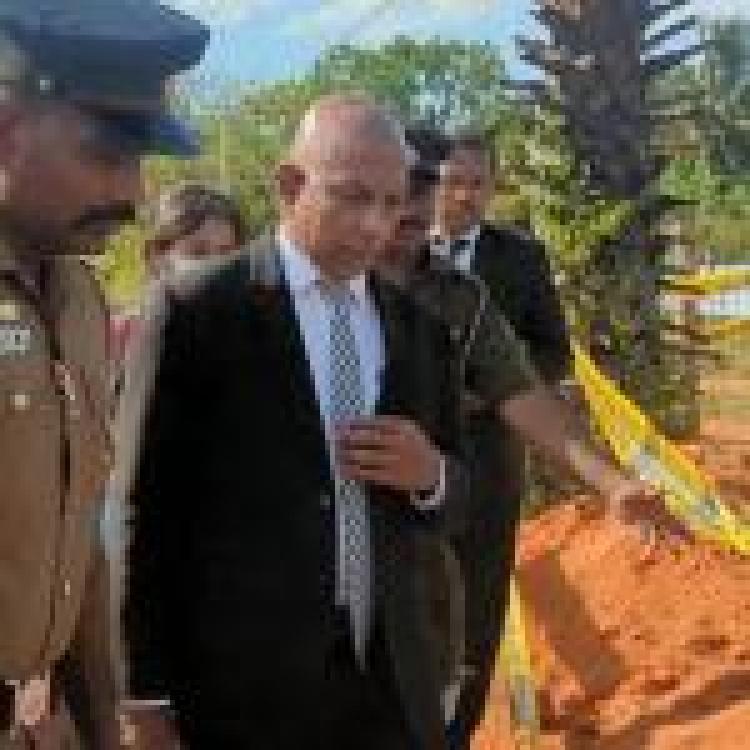![]()
Judge T. Saravanarajah, a respected Tamil judge in Sri Lanka, has resigned from multiple judicial positions, citing threats to his life and immense stress. The decision follows his recent ruling on the Kurunthurmalai Vihara matter, where he held officials of the archaeological department in contempt of court for failing to comply with a previous order.
The Transnational Government of Tamil Eelam (TGTE) has expressed its solidarity with Judge Saravanarajah, commending his "judicial moral courage" in the face of adversity. The TGTE, in a press release from New York, saluted the judge for his commitment to upholding the rule of law and called for accountability for the threats made against him.
Judge Saravanarajah's resignation sheds light on a broader issue of persecution of Tamils and the destruction or appropriation of Hindu temples by the Sri Lankan government, often under the pretext of archaeological discoveries. The Kurunthurmalai temple case has become a focal point, symbolising the struggles faced by Tamil communities in preserving their cultural and religious heritage.
The TGTE points out that Judge Saravanarajah has faced not only death threats but also legal actions filed against him in the Court of Appeals following his decision on the Kurunthurmalai case. The reduction in police protection, surveillance by Sri Lankan intelligence, and pressure from the Attorney General's office have added to the judge's distress.
The incident raises serious questions about the safety and independence of Tamil judges on the island. The TGTE argues that the threats against a senior Tamil judge exemplify the larger issue of systemic racism and the precarious position of Tamils within the country. The organisation criticises Sri Lankan President Ranil Wickremesinghe's rhetoric on reconciliation, citing this incident as evidence of the President's inability to address fundamental human rights concerns.
TGTE also challenged the credibility of the Human Rights Council's call for an internal investigation into international crimes committed during the final stages of the war. The TGTE argues that if Tamil members of the judiciary are unsafe for fulfilling their democratic duties, the Human Rights Council's expectations for victims and witnesses to speak freely and remain safe are unrealistic.

